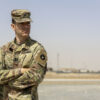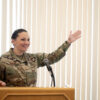Modern-Day Minuteman Makes History: First Air National Guard Flight Nurse Receives Distinguished Flying Cross Medal
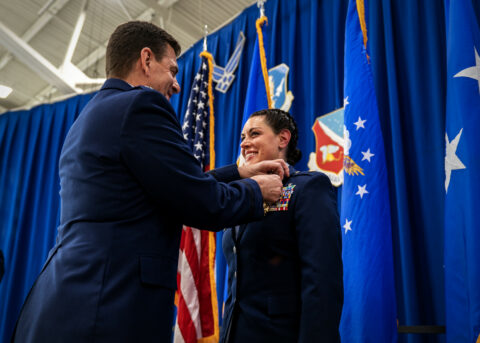
Maj. Katie Lunning made history as the first Air National Guard Flight Nurse to be presented the Distinguished Flying Cross Medal, in front of family, friends, and members of the 133 Airlift Wing in St. Paul, Minnesota, Jan 7.
She was awarded the DFC for her actions as a Critical Care Air Transport Team (CCATT) nurse in support of Operation Allies Refuge and the evacuation of Kabul on August 26, 2021.
Lunning, who serves part time in the Minnesota Air National Guard, was working as an Intensive Care Unit (ICU) nurse manager at the Iowa VA Hospital when she learned of a short-notice deployment opportunity.
“The uniqueness of the guard is that the citizen airmen serve both their nation and their communities,” said Lt. Gen. Michael Loh, director, Air National Guard. “That is exactly what Katie does.”
The concept of the citizen airman dates back to the Revolutionary War, when minutemen were called upon to rapidly deploy to defend the colonies from attack. Today the minuteman is the symbol of the National Guard and Lunning the modern-day example.
When the nurse originally assigned to the deployment had to withdraw from the mission, Lunning packed her gear and within three short weeks of notification, was enroute to serve with the 379th Aeromedical Evacuation Squadron (AES) at Al Udeid Air Base in Qatar. The critical care nursing skills she was using day in and day out as an ICU nurse would soon save countless lives.
Less than a month after she arrived, the transition of power in Afghanistan was announced. All personnel at Al Udeid Air Base were briefed on the deteriorating situation in Afghanistan and to be ready – although no one knew exactly for what. Around the same time, the two CCATT teams assigned to the 379th AES decreased to one: Lunning was now the only CCATT nurse in the region and thus assigned to every medical mission.
For two weeks, Lunning flew up to six missions a day to evacuate casualties from Hamid Karzai International Airport. Up to 36 times per day, she would trek three blocks pushing a stretcher through Taliban-controlled city streets to the Kabul Coalition Hospital. There, she received a critical patient ready for transport, exchanged equipment, and returned to the aircraft with nothing more than her M-9 to protect her. After the day’s missions were complete, she caught a couple hours of sleep and within hours was flying again. Her nursing heart was overflowing, but her body was exhausted.
August 26 began routine; Lunning had completed the day’s missions and was almost asleep when her phone rang. It was the team doctor. “We need to report for duty in 20 minutes. Get dressed and go,” he told her. Within 20 minutes she was back at the hangar and briefed on the situation in Kabul. A suicide bomber attacked the airport in Kabul, killed dozens and dozens more were injured. They were flying into danger and chaos.
Running on adrenaline in the face of imminent danger, she repeated her mantra, “Scary stuff we can’t control.” And she was off, down her familiar route in now hostile territory. Under small arms fire and the looming threat of a second suicide bomber, Lunning recalls focusing her mind on the patients that needed her. She performed patient triage and intake for 22 patients before they embarked on an eight-hour aeromedical evacuation flight to Landstuhl, Germany.
The skills of the ICU Nurse perfectly complemented the CCATT nurse who saved multiple lives during that flight. From gaining intravenous access to an 18-month old patient with zero pediatric supplies to managing a lifesaving in-flight massive blood resuscitation of a post-operative patient, the skills from her civilian career kept her fighting for the patients that needed her expertise.
A mother herself, Lunning recalls interacting with the sibling of the critical 18-month old. “At one point I took her hand and placed it on the baby’s and held it there. I wanted her to know that we cared and were doing our best to save her brother.”
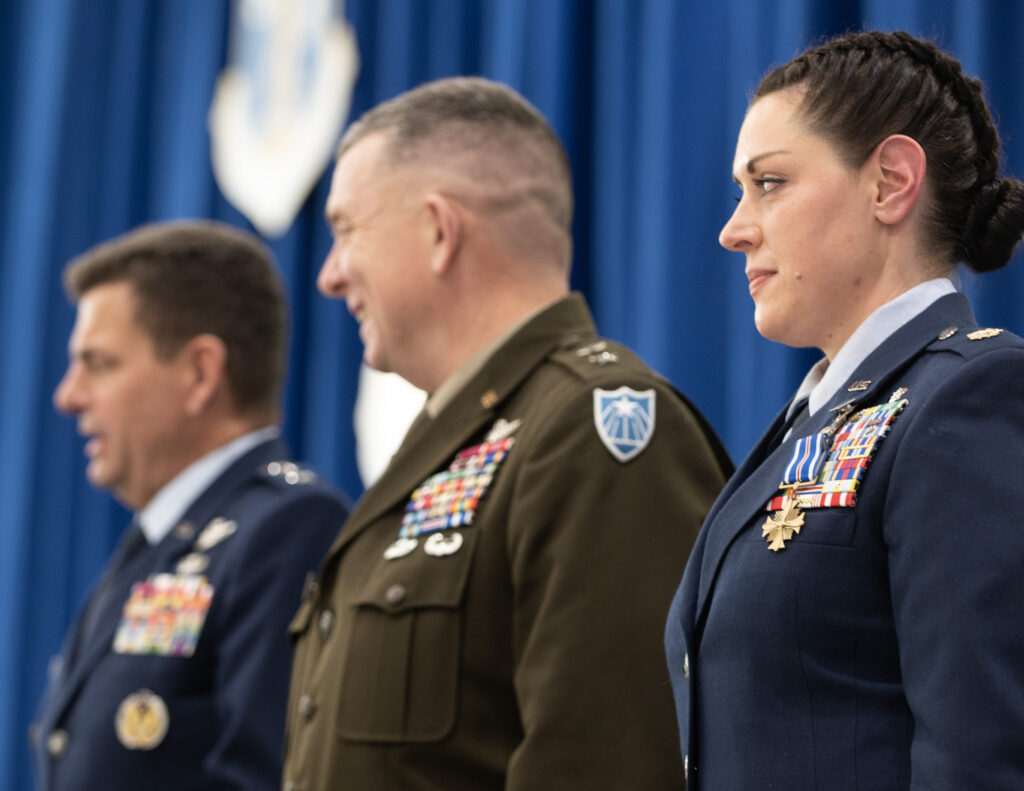
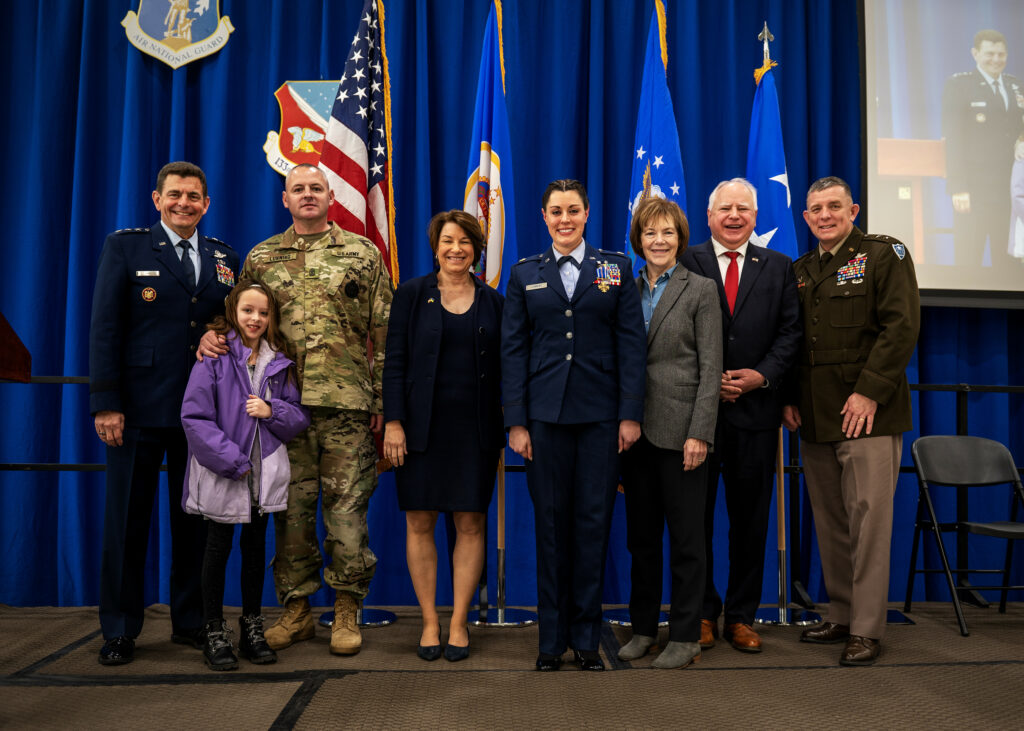
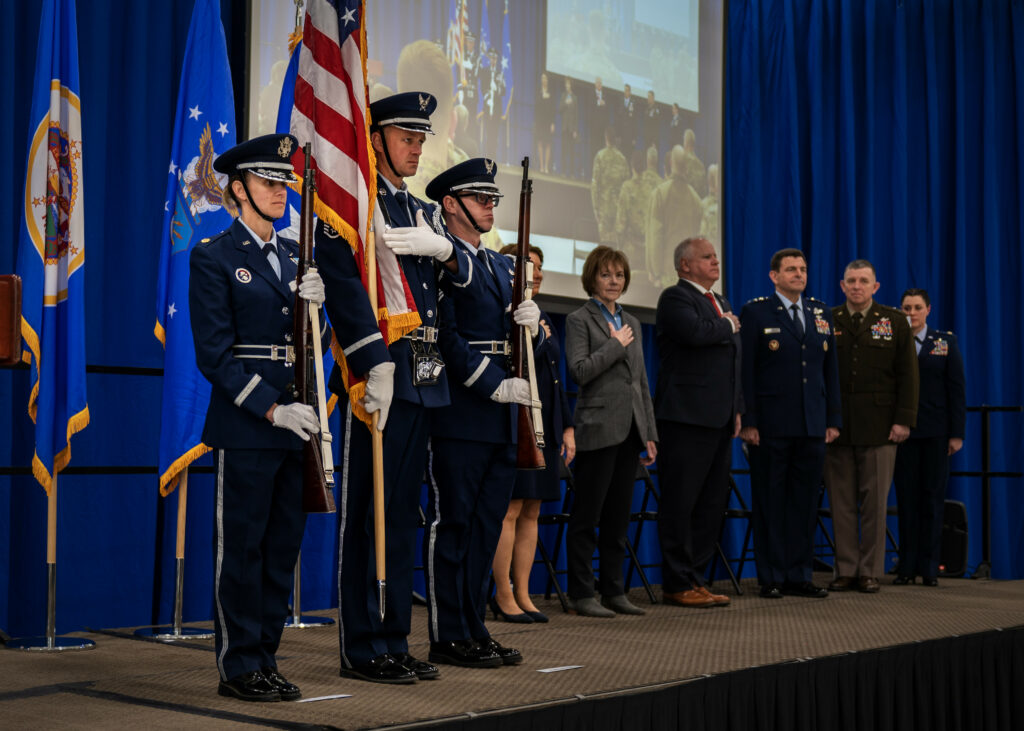
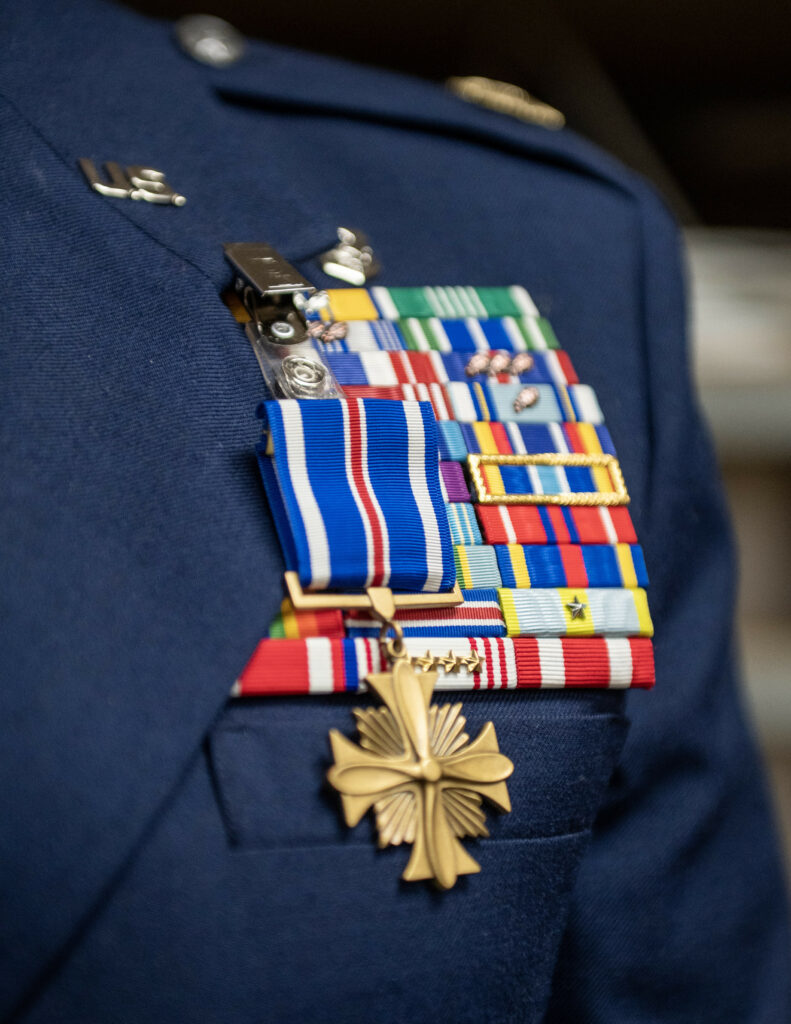
The modern-day minuteman, who rapidly deployed to serve her nation, displayed leadership, professional competence and aerial skill that culminated in all 22 lives saved during the single largest aeromedical evacuation airlift in Kabul Coalition Hospital’s history.
“Thank you, Major Lunning, for your dedication to the mission, for your bravery under fire, serving our nation with your medical expertise, and your care for humanity. You make us all very proud,” said Loh. “Ladies and gentlemen, I present to you a true American hero, Maj. Katie Lunning.”

